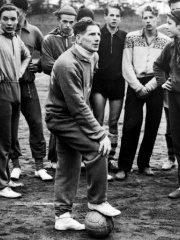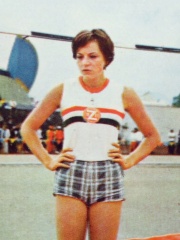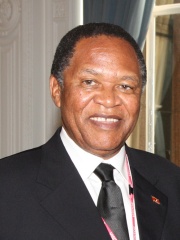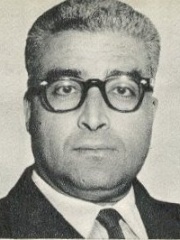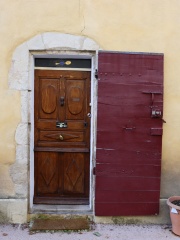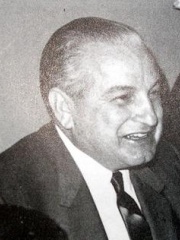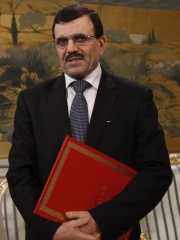Coach
Faouzi Benzarti
1950 - today
EN.WIKIPEDIA PAGE VIEWS (PV)

 Faouzi Benzarti
Faouzi Benzarti
His biography is available in 15 different languages on Wikipedia. Faouzi Benzarti is the 217th most popular coach (down from 187th in 2024), the 95th most popular biography from Tunisia (down from 87th in 2019) and the most popular Tunisian Coach.
Memorability Metrics
Page views of Faouzi Benzarti by language
Among Coaches
Among coaches, Faouzi Benzarti ranks 217 out of 471. Before him are Igor Štimac, Baltasar Albéniz, Sef Vergoossen, Domènec Torrent, Ezio Pascutti, and Mircea Rednic. After him are Juan Manuel Lillo, Ľubomír Moravčík, Claude Puel, George Raynor, Antoninho, and Omar Borrás.
Most Popular Coaches in Wikipedia
Go to all RankingsIgor Štimac
1967 - Present
HPI: 56.02
Rank: 211
Baltasar Albéniz
1905 - 1978
HPI: 56.02
Rank: 212
Sef Vergoossen
1947 - Present
HPI: 55.95
Rank: 213
Domènec Torrent
1962 - Present
HPI: 55.95
Rank: 214
Ezio Pascutti
1937 - 2017
HPI: 55.87
Rank: 215
Mircea Rednic
1962 - Present
HPI: 55.87
Rank: 216
Faouzi Benzarti
1950 - Present
HPI: 55.82
Rank: 217
Juan Manuel Lillo
1965 - Present
HPI: 55.80
Rank: 218
Ľubomír Moravčík
1965 - Present
HPI: 55.76
Rank: 219
Claude Puel
1961 - Present
HPI: 55.76
Rank: 220
George Raynor
1907 - 1985
HPI: 55.75
Rank: 221
Antoninho
1939 - 2021
HPI: 55.75
Rank: 222
Omar Borrás
1929 - 2022
HPI: 55.71
Rank: 223
Contemporaries
Among people born in 1950, Faouzi Benzarti ranks 406. Before him are Susan George, Muhammad Mian Soomro, Daniel von Bargen, Dietmar Lorenz, Josef Tošovský, and Hama Amadou. After him are Rene Bond, Lillian Watson, Jack Dongarra, Miloslava Rezková, Themba Masuku, and Toshiko Fujita.
Others Born in 1950
Go to all RankingsSusan George
ACTOR
1950 - Present
HPI: 55.93
Rank: 400
Muhammad Mian Soomro
POLITICIAN
1950 - Present
HPI: 55.93
Rank: 401
Daniel von Bargen
ACTOR
1950 - 2015
HPI: 55.93
Rank: 402
Dietmar Lorenz
WRESTLER
1950 - 2021
HPI: 55.85
Rank: 403
Josef Tošovský
POLITICIAN
1950 - Present
HPI: 55.84
Rank: 404
Hama Amadou
POLITICIAN
1950 - 2024
HPI: 55.83
Rank: 405
Faouzi Benzarti
COACH
1950 - Present
HPI: 55.82
Rank: 406
Rene Bond
PORNOGRAPHIC ACTOR
1950 - 1996
HPI: 55.76
Rank: 407
Lillian Watson
SWIMMER
1950 - Present
HPI: 55.76
Rank: 408
Jack Dongarra
COMPUTER SCIENTIST
1950 - Present
HPI: 55.74
Rank: 409
Miloslava Rezková
ATHLETE
1950 - 2014
HPI: 55.74
Rank: 410
Themba Masuku
POLITICIAN
1950 - Present
HPI: 55.73
Rank: 411
Toshiko Fujita
ACTOR
1950 - 2018
HPI: 55.71
Rank: 412
In Tunisia
Among people born in Tunisia, Faouzi Benzarti ranks 95 out of NaN. Before him are Bahi Ladgham (1913), Pierre Lévy (1956), Taos Amrouche (1913), Tarak Dhiab (1954), Moufida Tlatli (1947), and Carlos Marcello (1910). After him are Tommaso Costantino (1885), Paul G. Comba (1926), Ali Laarayedh (1955), Mokhtar Hasni (1952), Philippe Séguin (1943), and Brigitte Engerer (1952).
Others born in Tunisia
Go to all RankingsBahi Ladgham
POLITICIAN
1913 - 1998
HPI: 56.16
Rank: 89
Pierre Lévy
PHILOSOPHER
1956 - Present
HPI: 56.14
Rank: 90
Taos Amrouche
SINGER
1913 - 1976
HPI: 55.99
Rank: 91
Tarak Dhiab
SOCCER PLAYER
1954 - Present
HPI: 55.96
Rank: 92
Moufida Tlatli
FILM DIRECTOR
1947 - 2021
HPI: 55.96
Rank: 93
Carlos Marcello
MAFIOSO
1910 - 1993
HPI: 55.88
Rank: 94
Faouzi Benzarti
COACH
1950 - Present
HPI: 55.82
Rank: 95
Tommaso Costantino
ATHLETE
1885 - 1950
HPI: 55.53
Rank: 96
Paul G. Comba
COMPUTER SCIENTIST
1926 - 2017
HPI: 55.45
Rank: 97
Ali Laarayedh
POLITICIAN
1955 - Present
HPI: 55.17
Rank: 98
Mokhtar Hasni
SOCCER PLAYER
1952 - 2024
HPI: 54.89
Rank: 99
Philippe Séguin
POLITICIAN
1943 - 2010
HPI: 54.87
Rank: 100
Brigitte Engerer
MUSICIAN
1952 - 2012
HPI: 54.65
Rank: 101
Among Coaches In Tunisia
Among coaches born in Tunisia, Faouzi Benzarti ranks 1. After him are Jalel Kadri (1971).









